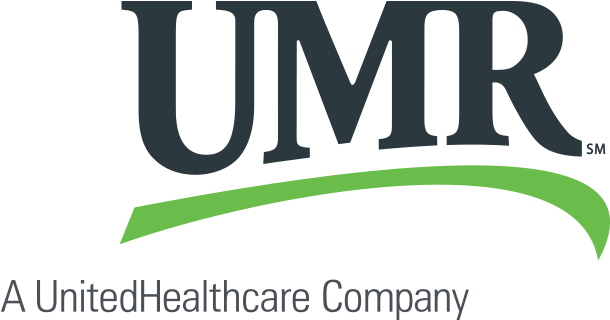Are you experiencing symptoms of depression? The Sylvia Brafman Mental Health provides specialized adult therapy and treatment in Florida that accepts UMR (United Medical Resources). Coping with depression is more successful with professional help. Call us below to learn more about your depression treatment options and our accommodation assistance for those traveling to Florida from out of state.

UMR Mental Health Depression Therapy & Treatment in Fort Lauderdale, Florida
Understanding Depression Disorder
Depression disorder is a mental health condition that affects how a person feels, thinks, and handles daily activities. It can manifest in different forms, such as clinical depression, persistent depressive disorder, and seasonal affective disorder. The causes of depression include genetics, trauma, or chemical imbalances in the brain.
Understanding the types of depressive disorders is key to recognizing symptoms and seeking the proper treatment. Clinical depression, often referred to as major depressive disorder, is one of the most common forms. It involves feelings of sadness, hopelessness, and fatigue that persist for weeks or months. Other types of depression, such as postpartum depression and bipolar-related depression, have unique triggers and patterns. Depression in adults can develop from life events, stress, or biological factors. Still, it can be effectively managed with depression therapy, medication like Selective Serotonin Reuptake Inhibitors (SSRIs), and lifestyle changes.

What is Major Depressive Disorder (MDD)?
Major Depressive Disorder (MDD), also known as clinical depression, is a severe mood disorder characterized by persistent feelings of sadness, hopelessness, and a lack of interest in daily activities. It affects mood, thoughts, and physical health, often lasting weeks or longer without proper treatment.
For many, the mental health condition affects daily functioning, making it challenging to carry out everyday tasks and impacting work, school, and/or relationships. Some may feel overwhelming sadness or dissatisfaction without understanding the underlying cause.
Depression might occur only once in your lifetime, but it’s common for individuals to experience multiple episodes. During these episodes, symptoms of depression tend to last most of the day, nearly every day, and can include:
- Persistent sadness or feelings of emptiness and hopelessness
- Irritability, anger, restlessness, anxiety, agitation, or frustration, even over trivial things
- Disrupted sleep patterns, such as insomnia or excessive sleep
- Fatigue and low energy that makes even simple tasks feel overwhelming
- Loss of interest or pleasure in regular activities, including sex, hobbies, or sports
- Changes in appetite, leading to weight loss or gain due to increased cravings
- Feelings of guilt or worthlessness, often dwelling on past mistakes
- Difficulty concentrating, making decisions, or remembering details
- Slowed thinking, speech, or physical movements
- Recurring thoughts of death, suicidal ideation, or suicide attempts
- Unexplained physical symptoms (i.e., headaches, back pain)
Managing depression involves a combination of therapy, lifestyle adjustments, and depression medications like the common SSRI, fluoxetine (Prozac). Cognitive Behavioral Therapy (CBT) is commonly used to address negative thought patterns, while regular exercise, adequate sleep, and a strong support system can also play significant roles. Antidepressants can help balance brain chemistry, promoting long-term recovery.
Who is UMR, The Behavioral Health Insurance Company?
United Medical Resources (UMR) is not a traditional behavioral health insurance company but a Third-Party Administrator (TPA). The company offers administrative support for self-funded, employer-sponsored health plans. As a subsidiary of UnitedHealth Group, one of the leading health insurance and healthcare service providers in the U.S., UMR third-party administration assists employers in managing their health plans effectively.
UMR self-funded plans aren’t offered directly to individuals or families. Instead, the company partners with employers to manage self-funded UMR group health plans, providing services including the following:
- UMR claims processing
- UMR customer service
- UMR provider network of doctors, hospitals, and specialists

What is UMR Treatment Coverage for Mental Health Depression Therapy and Treatment?
Plans administered by UMR health coverage include various options for mental health depression therapy and treatment. Depending on your specific plan, you may have access to services such as depression counseling, therapy sessions, and medications. Coverage details commonly vary, so reviewing your plan options is essential to understand what is included.
UMR plan options cater to diverse needs, including outpatient and inpatient mental health services for depression. Coverage typically includes access to a network of UMR preferred providers consisting of mental health professionals and specialized facilities, helping you find the appropriate care. Contact The Sylvia Brafman Mental Health Center for the most accurate mental health insurance coverage information. Our patient advocates can provide insight into your UMR health benefits and detailed answers to the common question: What does UMR cover for mental health depression therapy and treatment?
Does UMR Cover Depression Treatment in Florida?
Yes, UMR healthcare management typically involves depression treatment coverage in Florida, but the extent of coverage depends on your specific plan. Services such as therapy, counseling, and medication management may be included. It’s important to review your plan’s details to understand which mental health services are available.
When it comes to overcoming depression, UMR offers access to a network of mental health professionals, including therapists and psychiatrists. Whether you’re seeking outpatient therapy or more intensive treatment, you should verify your plan’s particulars. Call 877-958-9212 to speak with a patient advocate at The Sylvia Brafman Mental Health Center in Fort Lauderdale, Florida. We can confirm your benefits and coverage levels for depression treatment.

Does UMR Cover Mental Health Depression Therapy & Treatment in South Florida?
Yes, UMR health coverage typically includes mental health depression therapy and treatment in South Florida, but the specifics depend on your plan. Covered services may consist of depression therapy sessions, psychoeducation, and medication management. Reviewing your plan details to confirm the mental health services available to you is important.
Having a comprehensive understanding of your benefits for mental health depression therapy and treatment is essential to making informed decisions regarding your or a loved one’s care. At The Sylvia Brafman Mental Health Center, our helpful patient advocates are well-versed in the ins and outs of insurance and can provide clear and concise details at your request. How much does UMR cover for depression therapy in Florida? We have the answers to that, too. Contact us today.
Mental Health Depression Treatment Programs Covered by UMR Health Insurance in Florida
UMR health insurance in Florida offers extensive coverage for mental health depression treatment programs, ensuring the well-rounded care you need for yourself or a loved one. Explore the following programs briefly outlined below so you’re aware of your depression treatment options. Managing depression effectively and achieving optimal outcomes is possible.

At The Sylvia Brafman Mental Health Treatment Center in Fort Lauderdale, Florida, our team of dedicated professionals is ready to guide you. We offer IOP and a variety of depression treatment programs, each uniquely designed to meet your needs. So don’t wait, reach out to us today! Either give us a call or fill up the form below to request a callback.
"*" indicates required fields

What Types of Depression Disorders Does UMR Cover?
UMR provides coverage for various types of depressive disorders, addressing members’ nuanced needs to support effective depression management and treatment. The following examples illustrate some of the types of depressive disorders and symptoms covered by UMR-administered health insurance. Please note these examples aren’t exhaustive; coverage likely extends to other related disorders and treatments.

Does UMR Cover Dual-Diagnosis Treatment for Depression and Addiction?
Yes, United Medical Resources (UMR) typically provides coverage for dual-diagnosis treatment, which addresses both depression and addiction simultaneously. This approach integrates care for both conditions, combining strategies like therapy, counseling, and medication to tackle the complexities of treating these often co-occurring disorders. Approximately 25% of individuals with Major Depressive Disorder (MDD) also experience a Substance Use Disorder (SUD).
Dual-diagnosis treatment involves a coordinated approach where mental health professionals and addiction specialists work together to simultaneously manage depression and SUDs. This comprehensive care is crucial because each condition can influence and exacerbate the other, requiring a unified strategy for effective treatment. Call 877-958-9212 to speak with a patient advocate who can review the details of what dual-diagnosis treatment services are covered and the resources available.
Does UMR Cover Medications Prescribed to Treat Depression Disorders?
Yes, UMR commonly covers medications prescribed to treat various types of depressive disorders. This range of depression medications includes Selective Serotonin Reuptake Inhibitors (SSRIs), like fluoxetine and sertraline, and Serotonin-Norepinephrine Reuptake Inhibitors (SNRIs), like venlafaxine and duloxetine. Coverage details can vary based on your specific plan.
Depression medications aim to balance brain chemicals that affect mood and emotional state. SSRIs and SNRIs are commonly prescribed due to their effectiveness and relatively mild side effect profiles. UMR health benefits may include coverage for these medications. Still, it’s important to check your plan to understand the specifics, including potential copays and any restrictions or requirements for obtaining these prescriptions. For example, many insurance providers will only cover generic versions of drugs versus brand names.
Mental Health Programs That Take UMR Health Insurance for Depression Treatment and Therapy
At The Sylvia Brafman Mental Health Center, we provide comprehensive mental health services for adults struggling with depression. Our experienced team of medical and clinical professionals is committed to accurate diagnoses and effective treatment results. Over the years, we have helped numerous individuals attain their best psychological and emotional well-being.
Our treatment center may accept your UMR third-party administered health insurance policy – call below to confirm the details and schedule a free assessment, an integral part of our treatment admissions process. We regularly and conveniently welcome patients from outside Florida seeking exceptional, accredited care, and we assist with housing options. Call or visit us today at the address below:
- The Sylvia Brafman Mental Health Center: 7710 NW 71ST CT, Tamarac, Florida, 33321

How Much Does a Depression Treatment Program Cost with UMR Health Insurance Coverage?
The cost of a depression treatment program with UMR health insurance coverage can vary depending on multiple factors, including your specific policy. UMR commonly covers a significant portion of depression treatment program costs, including medications and therapy sessions, which average between $100 and $200 without insurance support.
You may be responsible for copays and meeting your deductible before your insurance provider begins paying. The overall cost of a depression treatment program can fluctuate based on the type of program, the services rendered, treatment duration, and other elements. For details on your out-of-pocket expenses with a UMR-administered health policy, contact The Sylvia Brafman Mental Health Center today.
How Much Does a Depression Program Cost Without UMR Health Insurance Coverage?
Without UMR health insurance coverage, depression program costs can add up and vary significantly. The expenses typically include therapy sessions, medications, and potentially additional services such as evaluations. Costs differ greatly. For example, 20mg of the common generic antidepressant, fluoxetine, averages $4 for a 30-day supply, while the brand name, Prozac, averages $490.
Managing out-of-pocket expenses can be challenging, so exploring all available financial assistance options is crucial. Consider funding alternatives like sliding scale fees or flexible payment plans, which some providers, including Sylvia Brafman, offer. Reach out to a caring patient advocate today to get a clear picture of potential costs and discover alternative payment solutions to make your mental health journey smoother.
How To Check My UMR Health Insurance Coverage for Depression Therapy
For a fast and efficient way to check your UMR health insurance coverage for depression therapy at The Sylvia Brafman Mental Health Center, call us at 877-958-9212. Alternatively, you can fill out our easy insurance verification form, and a dedicated patient advocate will get in touch with you shortly.
We’re here to carefully review your insurance policy and clarify what services are covered, as well as any potential out-of-pocket costs. Reach out to us for personalized, straightforward assistance and take the first step toward effective care and recovery.

How Many Times Will UMR Insurance Pay for Depression Treatment in Florida?
UMR insurance coverage for depression treatment in Florida typically depends on your specific plan and its terms. There may be a cap on the covered treatment episodes annually, or your health insurance provider may pay for treatment based on medical necessity. These details are outlined in your policy.
Review your plan’s benefits or contact us to understand how many sessions or treatments are covered. We can provide detailed information about your coverage limits and any requirements for continued treatment. This will help ensure you maximize your insurance coverage for effective depression care.



